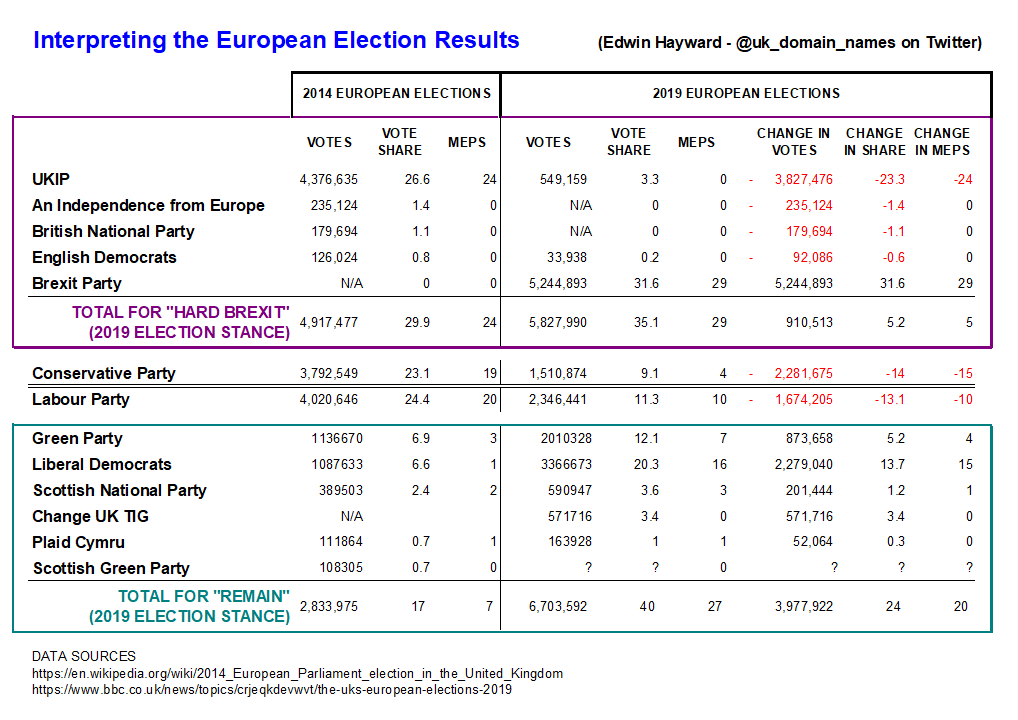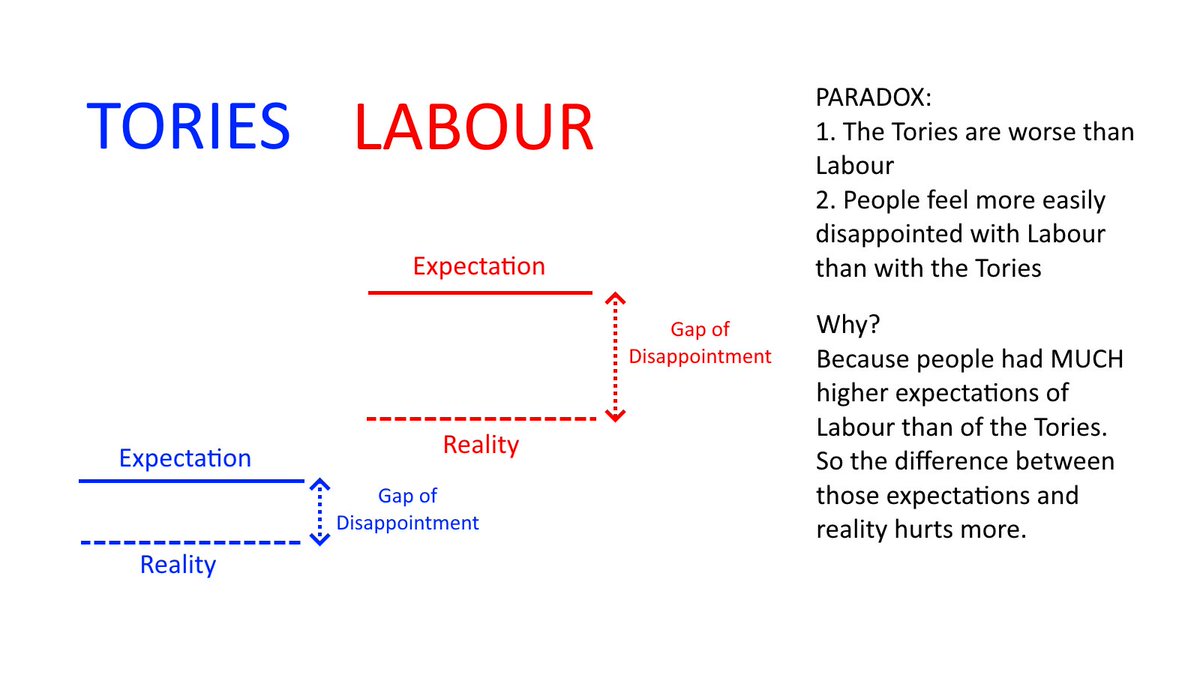Pro-Brexit parties (2019 definition) improved their vote share by 5.2% over 2014. Pro-Remain parties improved their vote share by 24%+ (Scottish Green data to come) Tories and Labour both got almost equally crushed. #RemainSurge #EUElectionResults2019 #EUElectionResults 

Takeaways...
- BP got largest vote share, was rewarded with most MEPs.
- We're more polarised as a country than ever.
- Elections did not give Hard Brexit a "mandate".
- Elections did not demonstrate a burning desire to "get on with Brexit".
- Labour's dead if they don't change.
- BP got largest vote share, was rewarded with most MEPs.
- We're more polarised as a country than ever.
- Elections did not give Hard Brexit a "mandate".
- Elections did not demonstrate a burning desire to "get on with Brexit".
- Labour's dead if they don't change.
- There's no "middle" between Brexit and Remain. Those pushing for a Hard Brexit will never ever compromise. As a result, Remain won't either. Which comes back to my previous point about Labour.
- Tory MPs running for leader on "no deal" platform are bickering over 35% of vote.
- Tory MPs running for leader on "no deal" platform are bickering over 35% of vote.
• • •
Missing some Tweet in this thread? You can try to
force a refresh









